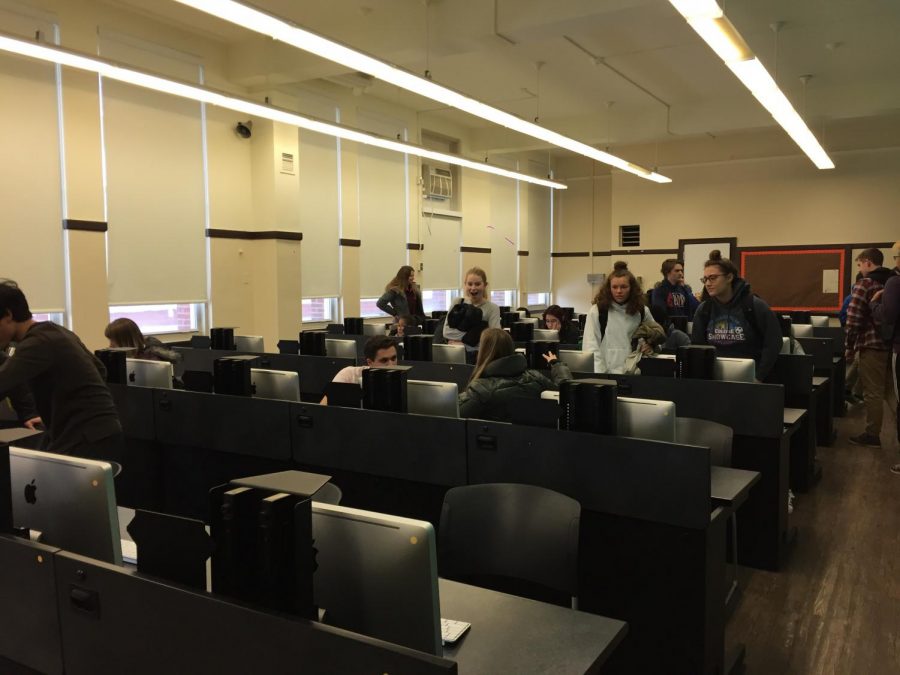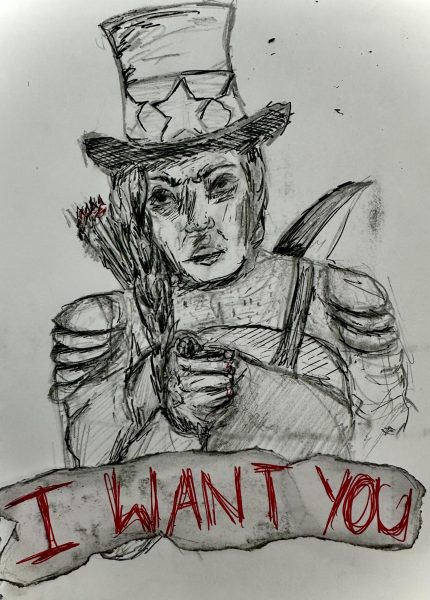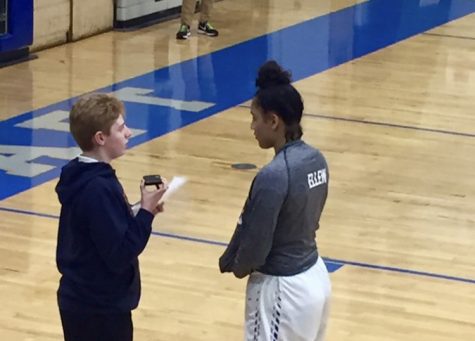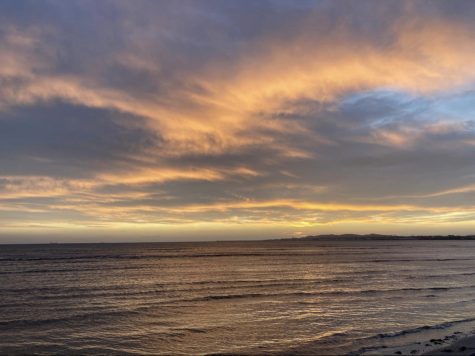The next wave of voters
Lane hosted voter registration for students after school on Feb. 6 to encourage students to exercise their right.
There’s something different in the air now. It seems as if disaster after catastrophe after tragedy have been ravaging the country leaving little time to take a breath in between. It’s hard to ignore the feelings of insecurity and doubt that follow these heart-wrenching events, and as a country that is seemingly running out of time, we really only have one option left.
That option is you. That option is the kid in your history class whose eyes light up when she seizes an opportunity to speak her mind. From the arriving freshmen to the exiting seniors, each student holds tremendous potential for influencing the next presidential election of 2020, and beyond.
As our generation rises and existing ones begin to fade, fresh faces will begin leading the country. With the passing of time comes the changing of the ideologies that dominate powerful government positions. We can already see evidence of polarizing views today that leave future elections to be indicators of shifting ideals of the coming generation.
Ms. Caracci, who has been teaching AP Government and Politics for three years, said her students are primarily concerned with issues facing the environment, as well as unattainable college costs. Concerns, she said, that make sense to be passionate about considering they are becoming inevitable threats facing the future of students.
However, Caracci said, “I think that as more people your age come into more positions of power, we will definitely see laws changing as a result of that.”
Elected officials are sworn in on the basis of the promise to serve the people who elected them. If today’s young people hold potential to rile support and pioneer progress on these important issues, it would be worth knowing what is important to them in the first place.
“I’d say our two main concerns are environmental issues and human rights, for sure,” Matthew Migely, Div. 883, said. Migely recently created the Model UN club at Lane that competes in mock trials discussing solutions to global conflicts and issues.
“In the next 50 years, there’s going to have to be a lot of more commitment to actual legislation and action versus petty treaties that can’t really be followed,” Migely said.
Lane student Robert Koch, Div. 051 said he too was concerned with time running thin on climate change.
“Every year counts with global warming. So the more we postpone making any action on it, it’s just going to be harder and harder to save,” Koch said.
Fortunately, Caracci recognized a noticeable drive in activism with her students.
“A lot of my students actually participated in the Women’s March and a lot volunteered for different candidates over the summer,” Caracci said.
The massive national turnout of the Women’s March less than a month ago is just one example of the trend of an increased political passion. Last summer in Charlottesville, N.C., the passion turned deadly as emotions ran high at a Unite the Right rally where white supremacists marched near the University of Virginia campus carrying torches. The day of protests ended tragically when a car plowed into a crowd of counter-protesters, murdering 32 year old Heather Heyer.
Regardless of political affiliation, both sides seem to hold the same burning ambition for their desired form of change. If this trend of proactivism continues at the intensity it is seen now in our youth, America could be looking at a wave of legislative changes with the rise of a new generation.
However for some, that desired form of change is absolutely no change at all. Countering the new and progressive ideologies are the those who prefer traditional values and tend to hold more conservative views. Regardless of the side of the spectrum one falls on, we all hold a right to vote and voice a say in our future.
On Feb. 6, Lane held a voter registration drive for upperclassmen. The fliers encouraged students to sign up if they cared about a variety of topics ranging from the internet and marijuana to the death penalty and religious freedom.
In the past, Lane has made the news for progressive actions and achievements made by their students. Around this time last year, Lane alum Malak Afaneh came up with an idea to print shirts featuring a Muslim woman as Rosie the Riveter.
According to DNAinfo, the $10 shirts sold quickly as word spread across the community. The resulting $1,210 was designated for the National Zakat Foundation, a Muslim-run charity that aids refugees and other vulnerable people. Afaneh had also previously spent her summers in Jordan volunteering at refugee camps.
Afaneh was just one student at Lane whose righteous actions were driven by her personal deep connections to her community. However, in a school full of thousands of students from thousands of different walks of life, their perspectives, motivations, and connections are diverse as well.
“You are a reflection very much of your environment,” Caracci said.
Each student’s opinions have been crafted over the span of years and heavily influenced by a variety of factors, arguably the most important being environment. Family beliefs, neighborhoods, schools, jobs, financial status, living situations, personal experiences, religion, sexual orientation, etc. are all elements that build one’s political standing. With a rapidly shifting country, the reality of a disaster cutting our time short looms eerily closer. It’s now up to us.
Your donations directly fund the Lane Tech student journalism program—covering essential costs like website hosting and technology not supported by our school or district. Your generosity empowers our student reporters to investigate, write, and publish impactful stories that matter to our school community.
This website is more than a publishing platform—it's an archive, a research tool, and a source of truth. Every dollar helps us preserve and grow this resource so future students can learn from and build on the work being done today.
Thank you for supporting the next generation of journalists at Lane Tech College Prep!

Julia Schuurman is a Senior at Lane Tech and is seventeen years old. She skipped her junior year at Lane to graduate early. This is her second year in...





